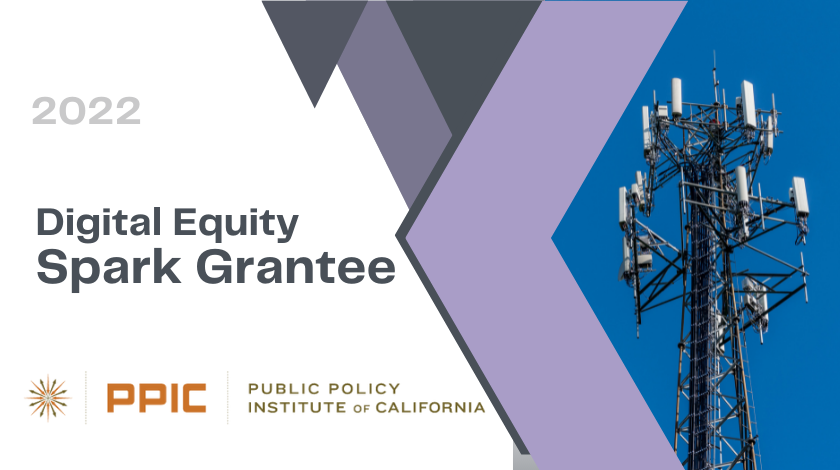News and Announcements
Is a $6B Investment Improving Digital Equity in California? PPIC’s Research Will Analyze the Implementation of SB 156
Published Date
- May 11, 2022

Last year, California Governor Gavin Newsom invested $6B to improve broadband access throughout the state via Senate Bill (SB) 156. This historic investment in digital equity was touted as a bill that would prioritize underserved and digitally marginalized communities by investing $3.25B to build and operate state-owned fiber lines and $2B to connect individuals and organizations with local networks through “last mile infrastructure,” as well as $750M in support of nonprofits and local governments. As the Governor said, “This $6B investment will make broadband more accessible than ever before, expanding opportunity across the spectrum for students, families and businesses—from enhanced educational support to job opportunities to health care and other essential services.”
With such an unprecedented yet desperately needed investment on the books, there is an opportunity to analyze its implementation in the hopes of identifying a scalable model, which is exactly what the Public Policy Institute of California (PPIC) is doing through funding by a 2022 Michelson Spark Grant. Over the next 12 months, PPIC will examine implementation strategies under SB 156 with an initial focus on how local entities are expanding broadband access as a result. Specifically, PPIC seeks to address the following questions:
- How do communities—schools, colleges, government entities, etc.—across the state plan to leverage these historic levels of investment to expand broadband infrastructure and increase broadband adoption?
- What community factors, such as geographic location, the share of unserved and/or underserved households, and poverty rates, explain the variation in communities’ approaches?
- Are there any models for partnerships that can be replicated statewide?
To answer these questions, PPIC will implement a multi-faceted research methodology inclusive of stakeholder interviews, document reviews, and surveying both County Chief Technology Officers and District Technology Directors when possible. PPIC’s research report will provide an in-depth account of the various broadband initiatives across the state, highlighting promising innovations and partnership models for closing the digital divide. This research will lay the groundwork for future study that gauges how many households in unserved and underserved communities have gained broadband access as a result of SB 156.
“The COVID-19 pandemic brought digital inequity to the forefront of the news—a reality that had been at the forefront of underserved communities’ lives for years prior. While SB 156 is a step in the right direction and may serve as a model for the government to invest in righting the wrong that is systemic digital inequity, it will only make a difference in our communities if the implementation approach understands and effectively targets underserved communities,” stated Miguel Leon, Digital Equity Senior Program Manager at Michelson 20MM. “We are proud to support PPIC as they explore how the bill is implemented. We hope their research serves as a model from which states and the federal government may draw.”
Michelson 20MM is a private, nonprofit foundation seeking to accelerate progress towards a more just world through grantmaking, operating programs, and impact investing. Co-chaired and funded by Alya and Gary Michelson, Michelson 20MM is part of the Michelson Philanthropies network of foundations.
To sign up for our newsletter, click here.